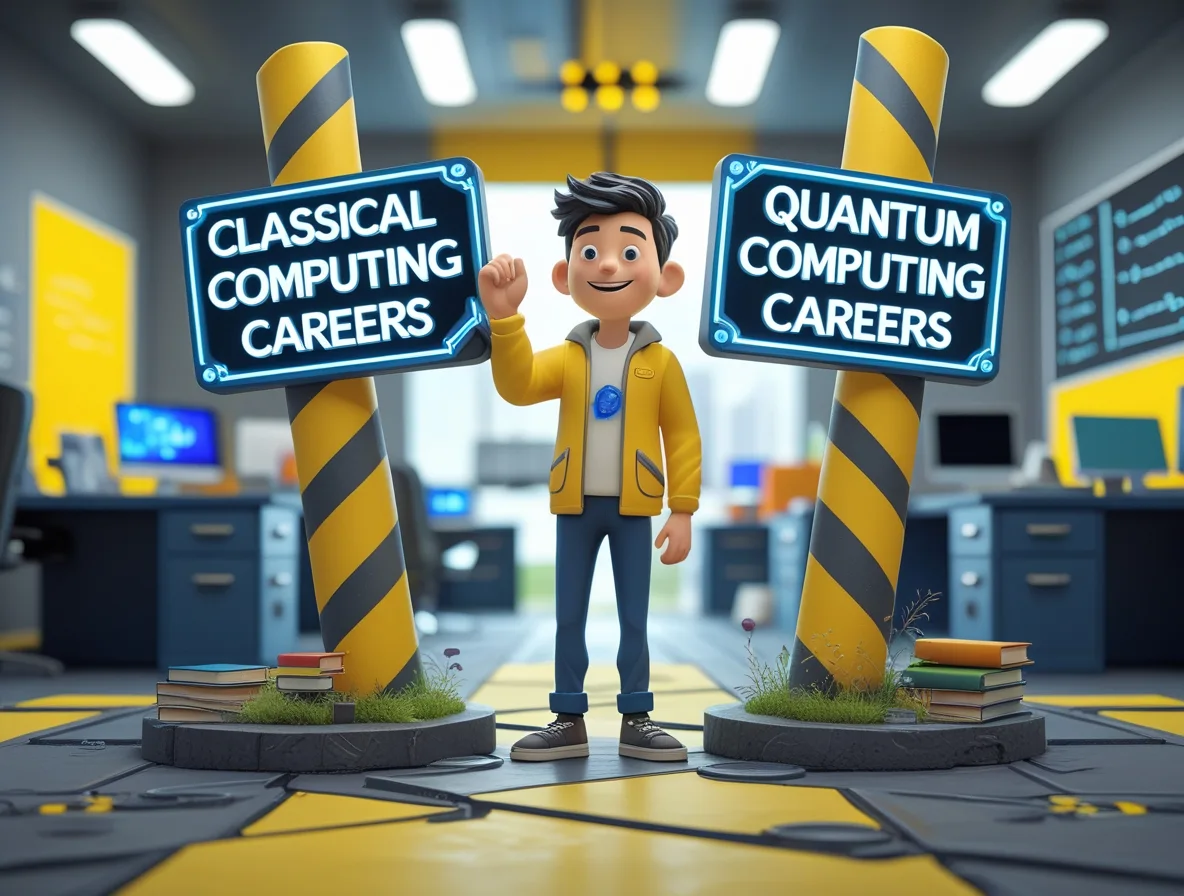The Quantum Careers Blog
We’ll keep you updated with the latest job trends, top skills in demand, and new openings for remote, entry-level, and graduate roles in quantum tech.
.webp)
FAQs about Quantum Careers
Find quick answers to common questions about careers in quantum computing; cryptography, sensing, & communications. Whether you are starting out or making a switch; these simple FAQs will help you get ahead.
What skills are required for quantum computing careers?
Your core skills may include quantum mechanics, linear algebra, quantum algorithms, and programming languages like Python and C++. You must also understand quantum frameworks like Qiskit or Cirq. Other essential skills and attributes include critical thinking, problem-solving, and a desire for lifelong learning.
What are the most in-demand skills for quantum computing jobs?
Quantum algorithm development, quantum programming using Qiskit, Cirq, or Pennylane, and classical programming skills are in high demand. Understanding quantum error correction, optimization, and machine learning is also useful. Roles focused on the hardware will need a strong background in physics, electrical engineering, and cryogenics.
What programming languages are needed for quantum computing?
Python is the main programming language and is used in practically all quantum frameworks, like Qiskit, Cirq, and Pennylane. C++ and Julia also play major roles for applications and simulations where performance is a critical factor. Understanding Q#, MATLAB, and JavaScript will help you work on particular platforms.
What qualifications do you need for a job in quantum computing?
Most positions need at least a bachelor’s in physics, computer science, math, or engineering. Higher-level jobs typically require a master’s or PhD in quantum-related fields. In some instances, work on projects, internships, or certifications can provide the needed practical experience and forgo the need for formal education.
What educational background is needed for quantum computing?
Having a strong base in physics, mathematics, or computer science is a must. It is very helpful to have taken courses in quantum mechanics, linear algebra, probability, and algorithms. Self-learning through online courses and hands-on projects can very well supplement formal education.
Do you need a PhD for quantum computing jobs?
Not for every position, software engineering and development roles will mostly accept a bachelor’s or master’s degree. A PhD is usually needed for a Research Scientist position or a senior Algorithm Developer. The applicable skills and experience, in addition to academic qualifications, are what the industry really seeks.
What mathematical skills are required for quantum computing?
Linear algebra (matrices, vectors, eigenvalues) is fundamental to understanding quantum states and operations. The fundamentals of probability, complex numbers, and calculus are necessary as well. Familiarity with the group theory and optimization is useful for the advanced quantum algorithms.
How to prepare for a quantum computing job interview?
Make sure to review the fundamentals of quantum mechanics, algorithms (Grover’s, Shor’s), and quantum gates. Implementing coding problems with Qiskit or Cirq and designing a quantum circuit will help. Be ready to talk about your projects, your approach to problem-solving, and the current trends in the industry.
What certifications help with quantum computing careers?
Courses offered by MIT and Stanford on edX/Coursera, AWS quantum computing certificate, and specialized bootcamps are valuable. While hands-on experience is the most important, certifications are a great way to advertise your knowledge.
What transferable skills work for quantum computing?
Skills and experience in software engineering, algorithm development, mathematical modeling, and data analysis are transferable. A background in cloud computing, experience in machine learning, and a degree in physics are also great assets. Strong analytical skills and the ability to debug and conduct research are universally important.
How to contribute to open source quantum projects?
Start with beginner-friendly issues on GitHub repositories like Qiskit, Cirq, or PennyLane. You can meaningfully contribute by reading the documentation, fixing bugs, enhancing examples, and authoring tutorials. Participate in community forums, join hackathons, and communicate with the maintainers to establish your reputation.
Can you learn quantum computing skills on the job?
Yes, Many companies do have training and mentorship for new hires with strong fundamentals. A strong background in programming and mathematics does make learning on the job much easier. Nonetheless, self-initiated learning prior to employment is a great testament of your dedication and does make your learning much faster.





.webp)


.webp)




.svg)

